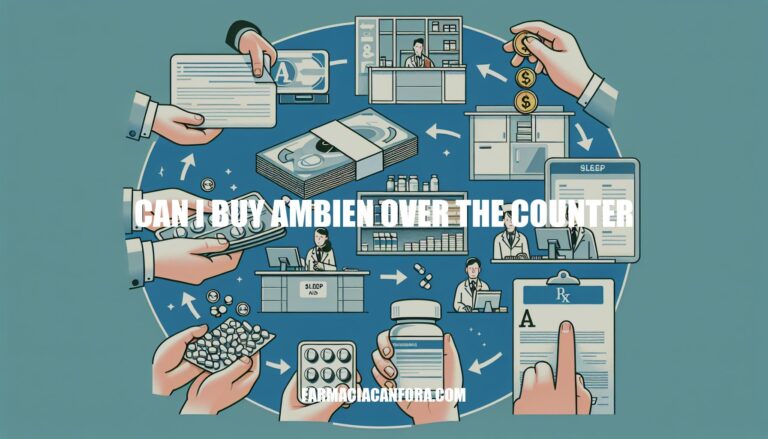


over-the-counter“>Ambien, a medication used to treat insomnia, is not available over the counter. It requires a prescription due to its potential side effects and risk of misuse or dependence. Understanding the regulations and availability of Ambien is crucial for ensuring safe and effective use, as well as for exploring alternative treatments if necessary.
Ambien, known generically as zolpidem, is a prescription medication used for treating insomnia. Its legal status and availability over the counter vary significantly across different countries:
In general, Ambien is not available over the counter in most countries due to its potential for misuse and dependence. Always check local regulations before traveling with or attempting to purchase Ambien abroad.
To purchase Ambien (zolpidem), you need a prescription from a licensed healthcare provider. Here are the key requirements:
Medical Evaluation: A healthcare provider must evaluate your condition and determine that Ambien is appropriate for you. This includes assessing your medical history, current medications, and potential for substance abuse.
Controlled Substance: Ambien is classified as a Schedule IV controlled substance due to its potential for abuse and dependence. This classification means it is regulated by the DEA and requires a prescription.
Prescription Details: The prescription must include specific details such as dosage, frequency, and duration of use. It must also be written by a DEA-registered practitioner.
Follow-Up: Regular follow-up appointments may be required to monitor the medication’s effectiveness and any side effects.
Ambien is not available over the counter because of its potential for misuse, dependency, and the need for medical supervision to ensure safe use.
Making Ambien (zolpidem) available over the counter could lead to several risks and concerns:
These concerns highlight the importance of medical supervision when using Ambien.
Here are some over-the-counter alternatives to Ambien for sleep aids:
Melatonin: A hormone that regulates the sleep-wake cycle. It’s effective for people with circadian rhythm sleep disorders, jet lag, or shift work sleep issues.
Diphenhydramine: An antihistamine found in products like Benadryl and ZzzQuil. It induces drowsiness but may cause side effects like dry mouth and grogginess.
Doxylamine Succinate: Another antihistamine used in sleep aids like Unisom. It helps with sleep but can also lead to similar side effects as diphenhydramine.
Valerian Root: A herbal supplement that may improve sleep quality and reduce the time it takes to fall asleep.
CBD (Cannabidiol): A compound found in cannabis that has gained popularity for its potential to promote relaxation and improve sleep quality.
Ambien, also known as zolpidem, is a prescription medication used for treating insomnia. It is not available over the counter in most countries due to its potential for misuse and dependence.
The availability of Ambien varies across different countries, with some countries prohibiting it altogether.
To purchase Ambien, you need a prescription from a licensed healthcare provider, which includes a medical evaluation, controlled substance classification, prescription details, and follow-up appointments.
Making Ambien available over the counter could lead to several risks and concerns, including addiction and abuse, side effects, sleepwalking and amnesia, interactions with other substances, and incorrect usage.
Some over-the-counter alternatives to Ambien for sleep aids include melatonin, diphenhydramine, doxylamine succinate, valerian root, and CBD (cannabidiol).
In summary, Ambien is not available over the counter due to its potential risks and concerns. It requires a prescription from a licensed healthcare provider to ensure safe and effective use.